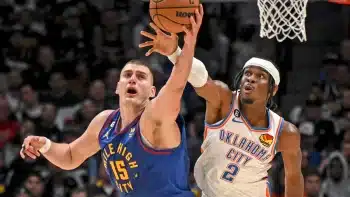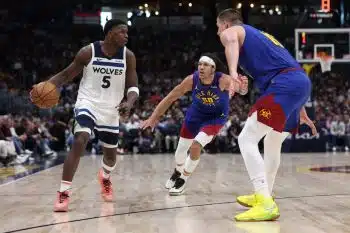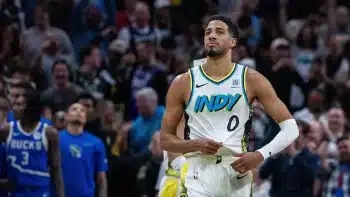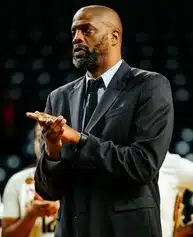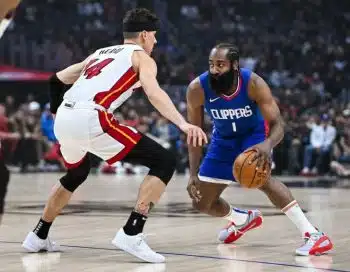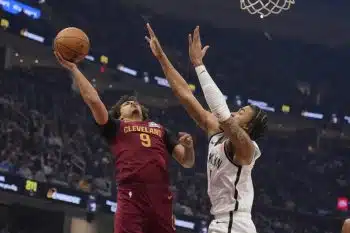NBA
NBA Daily: Can a Featured Big Help Win a Title?
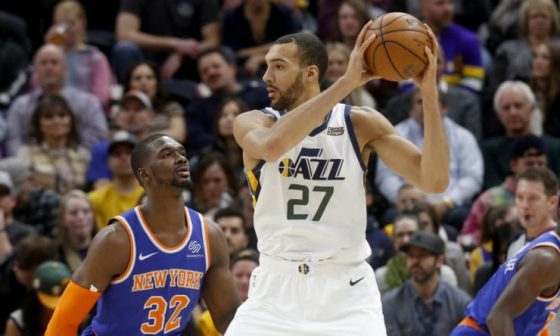
Last season, the New Orleans Pelicans looked like a legitimate team of the future. Not just good, really good. They played their way to a sixth seed in the loaded West and then swept the Portland Trail Blazers in the first round of the playoffs.
Fast forward to this season and things look much different. Their recent three-game winning streak aside, they are still just 30-36 on the season. Anthony Davis has demanded a trade, they already dealt Nikola Mirotic, and it feels like more players may be on the out this upcoming summer.
This is just another example of the evergrowing dilemma that many teams in today’s NBA face. The issue is that arguably you can no longer win a championship with a frontcourt player as your best and number one option.
This is a bold claim, no one is going to argue that it isn’t, but looking at recent history really cements the case that it may be true.
Let’s start with Davis and the Pelicans for example. He’s a bonafide superstar. In a season that many are referring to as uninspired, he’s still putting up 27.1 point, 12.4 rebounds, 4.1 assists, 2.5 blocks, and 1.6 steals per night – absolutely elite numbers. The Pelicans played quite well last season, upgraded their roster in the offseason (yes, losing Boogie was overall an upgrade), and went into this season with renewed faith. Things looked great – until they didn’t.
The biggest problem New Orleans has faced this season is that their number one most viable option (Davis) plays Center. At first glance, this seems like a flawed argument. Many great centers have played major roles on championship teams in the past. But in today’s evolving NBA, it is difficult to even make the playoffs when a big is your number one guy.
The biggest issue is that he doesn’t technically have the ball on every possession. Sure, you could make sure he gets it at the high key or low post every time you come down the court, but then your offense becomes too predictable and sluggish. Even if a center can efficiently shoot the three, it still might spread the backcourt too thin having five players beyond-the-arc, making the team as a whole easier to guard as there is less movement.
Look at the last couple of championship teams. The Golden State Warriors had Draymond Green as their main big. Sure he’s an All-Star, but he’s also been their third or fourth (sometimes even fifth) option. LeBron James’ championship run with Cleveland featured a dominant, shooting big in Kevin Love. Suprise, he was their third option. Dating back to LeBron’s title with Miami, you can point to Chris Bosh, an elite frontcourt player, who was the third option.
The Dallas Mavericks won their title in 2011 with Dirk Nowitzki as their best player, and the 2006 San Antonio Spurs did the same with Tim Duncan – both frontcourt guys. So clearly it can be done. But those title runs both happened over eight years ago. In today’s NBA – a league that is incredibly different from even just five years ago – your first and basically second options need to come from the backcourt.
As discussed before, your backcourt guys control the entire game. They bring it up the court, they facilitate on offense, and they spend most of their time behind the three-point line. Historically, they are better shooters, both from the free-throw line as well as from distance. It is easier for them to take over games because they are much more accustomed to having the ball in their hands.
The easiest argument for the necessity of at least two go-to guys in the backcourt is the Los Angeles Clippers. They had an elite point guard in his prime in Chris Paul, an elite four in Blake Griffin, and an All-Star center in DeAndre Jordan. Do the math, and that’s one guy in the backcourt and two in the frontcourt. They never even made it to the Western Conference Finals.
Many arguments could be made for both sides of the spectrum, but at the end of the day, history rules in favor of the backcourt. Teams like the Denver Nuggets featuring Nikola Jokic, the Minnesota Timberwolves featuring Karl Anthony-Towns, and even the Philadelphia 76ers with Joel Embiid will continue to struggle to win the title, all due to the fact that their go-to players are featured in the paint.
Even pointing to the Utah Jazz, Donovan Mitchell is clearly their go-to force on offense, but Rudy Gobert is easily the teams second best – if not best (thanks to his defense) – overall player. As long as this remains constant, Utah will never find themselves winning a championship. Having two players in your backcourt that can be the focal point of a team is essential in today’s NBA.
It is understandable to push back against this opinion. For all we know, the next dynasty to take over after the Golden State Warriors will feature a center as their number one option. It’s hard to say. But one thing remains constant with all that’s been discussed. In the ever-evolving NBA, recent past champions have mostly shown us one thing: You can’t win a championship featuring your first – and oftentimes second – option as a frontcourt player.
